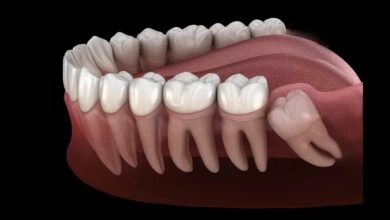Navigating Dental Anxiety and Fear with Confidence

Every person is unique, with different traits and characteristics. Likely, people may have a different perspective when it comes to visiting a dentist. It is estimated that 35 million people do not visit the dentist because they are too scared. The anxiety and fear instilled in them could be deep-rooted.
Powell, TN dental services provide state-of-the-art dental facilities to patients, in addition to creating a friendly and calm atmosphere to ease their anxiety and fear.
Understanding dental anxiety and fear
Phobia is a feeling of uncontrolled and irrational fear of an object, person, or situation that is not actually harmful. Dental fear and anxiety are often interrelated and termed as odontophobia.
Dental anxiety and fear contribute to avoidance of dental care since it is associated with the fear of visiting a dentist. This can negatively impact your oral health and general well-being.
Common dental fears
To manage or treat a particular condition, it is essential to determine the root cause behind it. The following factors may rigger dental anxiety and fear:
- Negative feelings associated with your dentist, especially if you had a bad experience in the past.
- Being embarrassed about your tooth condition.
- Hearing someone else discuss their dental fear can spark the same fear in you.
- Fear of needles to administer anesthesia.
- Fear of blood (hemophobia) due to bleeding during dental procedures.
- The sound of dental instruments like scalers can make you anxious
- Fear of pain and discomfort that could cause anxiety
- Fear of gagging
Tips to overcome dental anxiety
Dental anxiety and fear can be completely overwhelming. However, it is crucial to overcome this fear since maintaining good oral health through regular dental visits is important.
Here are some helpful tips:
- Ask a friend or a loved one to accompany you during your dental visits.
- Keep your dentist informed about your fears
- Visit your dentist during a less busy time of the day to reduce the triggers that may lead to anxiety.
- Bring noise-blocking headphones, earbuds, or earphones with music to help you calm down.
- Practice deep breathing relaxation techniques to lower your anxiety levels.
- Use throat sprays to control the gag reflex.
- Use hand signals during the procedure to signal your dentist when to stop the procedure if you feel anxious.
Takeaway
Dental anxiety and fear need to be addressed as soon as possible since it is essential to overcome this problem. Receiving regular dental checkups and cleanings is incredibly important. It is the easiest way to maintain excellent oral hygiene and reduce the need for more complex procedures.



